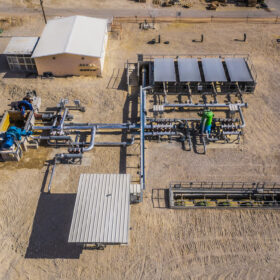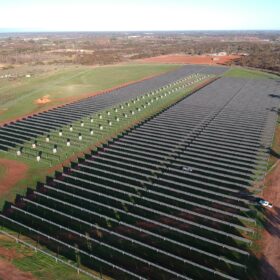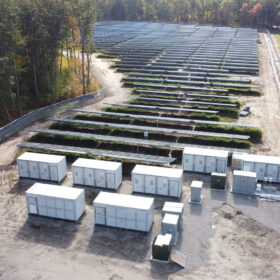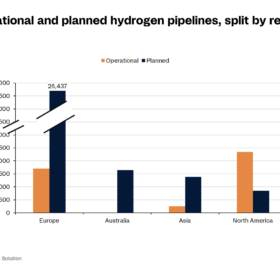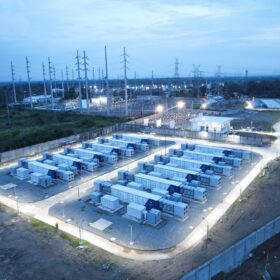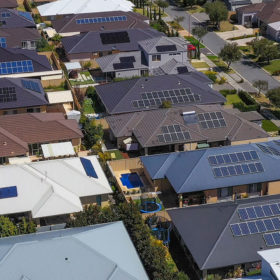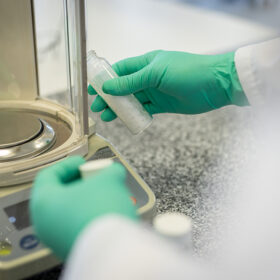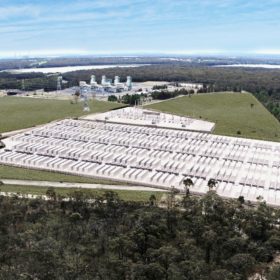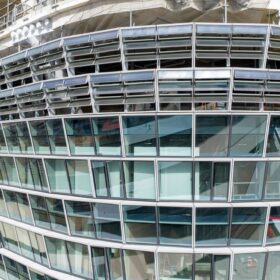‘Least-cost’ model for compressed air energy storage
Stanford University researchers have created a model to assess how much compressed air storage capacity might be needed for the deep decarbonisation of power systems, while compensating for the variability of wind and solar-based power systems. They applied the model to California’s energy system and found that compressed air could be very competitive on a dollars-per-kilowatt-hour basis.
Weekend read: Renewables’ human hurdle
Community opposition to renewable projects tends to be dismissed as NIMBY-ism, an attitude of not-in-my-back-yard. To do so fails to recognise the character and potential claws of the globally growing movement, as well as the renewable sectors’ own role in rearing resentments. Australian reporter Bella Peacock investigates the emotional thread that ties the particularities of opposition movements together, and ways developers can defuse the charge.
DC-coupled hybrid project brought online in SA as retailer moves into mid-scale development
A South Australian racecourse has now become a fully operational DC-coupled solar and battery farm. The Berri Energy Project, owned by retailer Flow Power, is part of the company’s strategy to build up to 50 MW of mid-scale (sub 5 MW) projects to supplement its offtake portfolio, Flow Power COO Byron Serjeanston told pv magazine Australia.
Top five battery energy storage system design essentials
Before beginning BESS design, it’s important to understand auxiliary power design, site layout, cable sizing, grounding system and site communications design.
Global hydrogen pipeline projects to surge by 2035, says Rystad
Norwegian consultancy Rystad Energy says that hydrogen pipelines will be “far better” than vessels at moving hydrogen over short- and medium-range distances in the years ahead.
San Miguel edges closer to delivering 1 GW battery fleet in Philippines
San Miguel, which is now behind on its original plan to deliver a 1 GW/1 GWh fleet of battery energy storage systems (BESS) by the end of 2022, continues to roll out big batteries across 32 sites in the Philippines, in order to integrate up to 5 GW of renewables into the island nation’s grid.
VPP participation appears overblown with questionable fleet inclusions
Virtual Power Plants, or VPPs, are relatively mature in Australia due to the country’s high penetration of, and familiarity with, distributed energy resources. But claims of VPP success and participation may be overblown, with a considerable gaps between the numbers some platforms are claiming and the realms of possibility.
WA increases electricity supply for regional households after rule change wreaks havoc
Western Australia will now offer rural and metro-area residents in its main grid the same electricity supply. The move comes after a seemingly innocuous rule change saw regional customers unable to run their air conditioning at the same time as their cooktops – a drama pv magazine Australia first reported in July 2022 which led to sustained community pressure.
Brisbane company launch lithium-sulfur cells with half weight of lithium-ion batteries
Brisbane company Li-S Energy has developed its third-generation semi-solid state lithium sulfur battery cells. The 20-layer cells, produced in its facility in Victoria, are lightweight and energy dense, reaching over 400 Wh/kg.
NSW opens for big battery bids
The New South Wale government’s competitive tender for 380 MW of ‘firming’ battery capacity has now opened.
